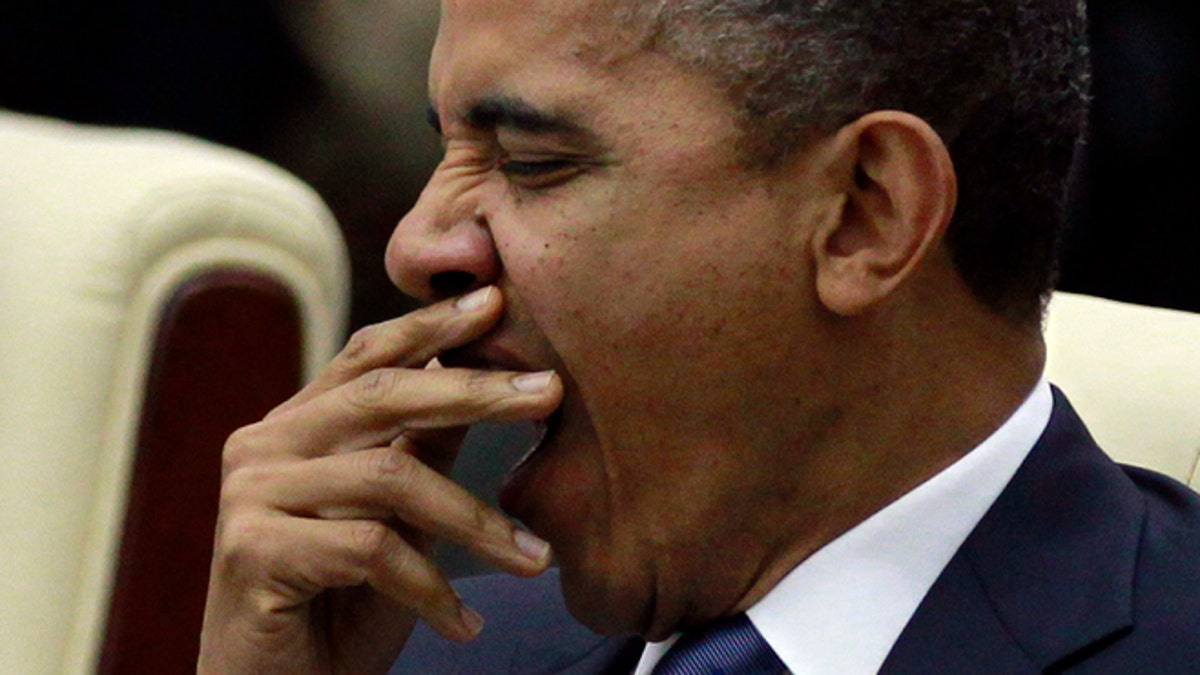
(Reuters)
President Obama’s State of the Union Address Tuesday night was solidly crafted, well delivered, and – with the notable exception of his stirring tribute to Sgt. 1st Class Cory Remsburg – utterly forgettable.
In the days leading up to the speech, we were led to believe that the president would talk about big ideas, that he would make a clarion call for a “year of action” centered on “income inequality.”
But instead of swinging for the fences, the president played small ball, embracing a Clintonesque medley of poll-tested proposals that sounded like action, without actually doing much of anything. One hoped nostalgically for a mention of midnight basketball.
[pullquote]
Some of his proposals – patent reform, immigration reform, reworking the Earned Income Tax Credit (EITC), and increased trade – do hold potential, though the devil, as always, will be in the details. But for the most part, the speech was simply a tired reiteration of a liberal wish-list.
In his 2013 State of the Union, President Obama called for Congress to take up 42 items. Congress ended up enacting just two. That left a lot left over for this year, and the president dutifully recycled the golden oldies: green energy subsidies, gun control, universal preschool, and so on.
There was a little something for pretty much every potential Democratic voting block. The key word here is “little.”
The president’s call to raise the minimum wage was typical. He had made the exact same promise last year, and there is no reason to believe it more likely to pass this time around.
Even if it did, raising the minimum wage would do little to achieve the president’s professed goal of ensuring that “no one who works full time … [has] to raise a family in poverty.”
Contrary to the president’s implication, less than five percent of those earning the minimum wage are heads of households living below the poverty level.
For every poor person that would benefit from the president’s proposal, four beneficiaries would live in households with incomes above 300 percent of poverty.
The president’s plan would help a lot of college students and second-earners, but low-skilled, low-income workers would be as likely to lose their jobs as to benefit.
Even the president’s vaunted threat to act without Congress turned out to be inconsequential. The big item was an executive order raising the minimum wage for federal contractors to $10.10/hour. But the president’s order will, at best, affect only 150,000-200,000 workers. In addition, it only applies to future contracts, not ongoing work, meaning its immediate impact will be almost nonexistent.
After that, the president was left asking businesses to voluntarily follow the example of a Minneapolis pizza restaurateur and raise wages voluntarily, because it’s good for employee morale. No doubt, businesses had never thought of that.
The president recalled last year’s promise to “connect 99 percent of our students to high-speed broadband over the next four years.” By this year, that had been downsized to: “a down payment to start connecting more than 15,000 schools and twenty million students over the next two years.”
There was also more talk about high-tech manufacturing hubs. They aren’t bad ideas necessarily, but we’ve been there, done that, and bought the T-shirt already.
The same is true for the president’s call for a review of federal job training programs. Considering that the federal government currently runs 47 such programs without much evident success, a review sounds like a good idea. But haven’t we heard that before too?
When it came to ObamaCare, the president seemed to spend more time pleading with people to sign up than he did defending his signature achievement. And, when he wasn’t asking mothers to “get on your kids to sign up,” he was asking Republicans to please stop trying to repeal it. That didn’t exactly sound like success.
The president did claim that some 9 million Americans had received health insurance thanks to the law, but that number is almost ludicrously misleading.
Six million of those people haven’t received actual insurance, but have simply been pushed into Medicaid.
Of the three million enrolled in private insurance, only 70 percent have actually paid for a policy, and more than two-thirds of those were previously insured – but had lost their current policies because of Obamacare.
Counting them as an ObamaCare triumph is a bit like breaking a man’s leg, then claiming credit for giving him a crutch.
Overall, the president spoke for a long time – more than 65 minutes – and, by some counts, made at least 22 specific promises. But in the end, it sounded an awful lot like the quack of a lame duck.
